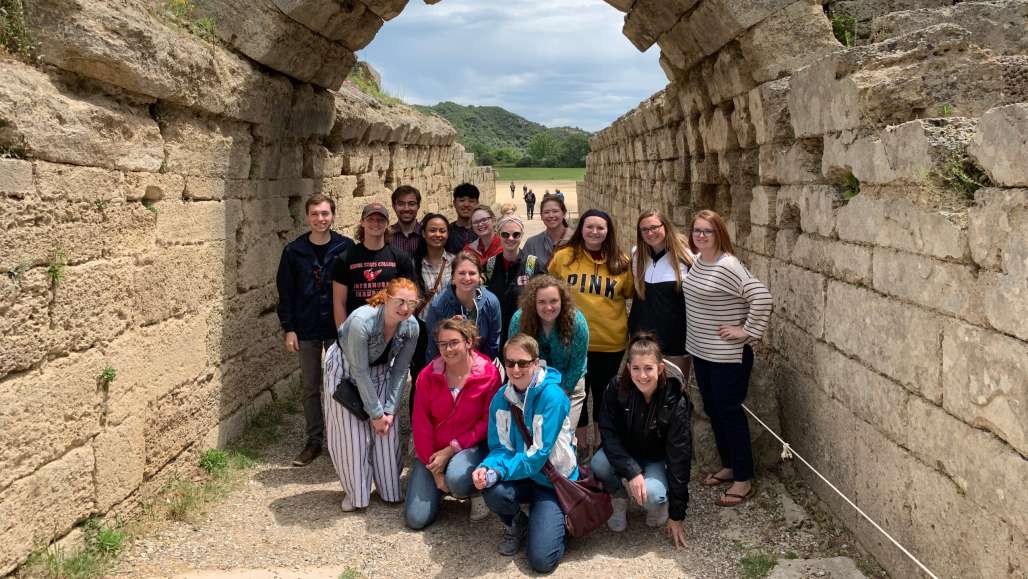Student Philosophers Travel to Greece

Ancient philosophers discovered atoms, defended democracy, and questioned the nature of knowledge. But why should their views matter to us today? That’s the question addressed in the spring semester Honors Global Engagement course Ancient Philosophy and the Modern World, in which students used ancient philosophy to analyze contemporary social, political, and ethical themes and events. They capped off the semester by traveling to Greece to spend two weeks visiting some of the places they’d learned about.
“Traveling to Greece was life changing,” said Emilee Haselton ’21, a double-major in anthropology and sociology. “Seeing ruins from an ancient Greek city was breathtaking. The Acropolis was absolutely beautiful and it has sparked an interest in traveling I didn’t know I had!”
In Greece, the students toured Athens, Delphi, and other notable places, and visited a number of historic sites and museums, including the Olympic Stadium, art and folklore museums, and archaeological sites. They took part in a joint seminar, Aristotle: The Educator, the Philosopher, with the University of Thessaloniki School of Philosophy. “In philosophy, we talk about big ideas like justice, goodness, and democracy,” said Philosophy Professor Emily McGill, who taught the class. “The aim of the course as a whole was to use ancient philosophy as a lens through which to view these abstract ideas in our contemporary world. Traveling to Greece was a great opportunity not just because it immersed students in a different culture for two weeks, but also because it allowed them to ground the lofty ideas we discussed during the semester in physical locations. So, for example, we saw the Stoa in Athens where the ancient Stoics practiced their philosophy, and the Oracle at Delphi who told Socrates that he was the wisest of all men. It was amazing to see the students draw these connections!” A Global Engagement course is offered every spring at Keene State. Each course has a different theme and culminates in an international trip. The class is designed to promote a broader understanding of the world and to help students see their home and themselves in more global terms.
For instance, students who took the course this semester spent one class period discussing both Plato’s dialogue Crito, in which an imprisoned Socrates talks with a friend, and Martin Luther King Jr.’s “Letter from a Birmingham Jail.”
That’s a pretty good example of ways that trends in the ancient world are still relevant today.





